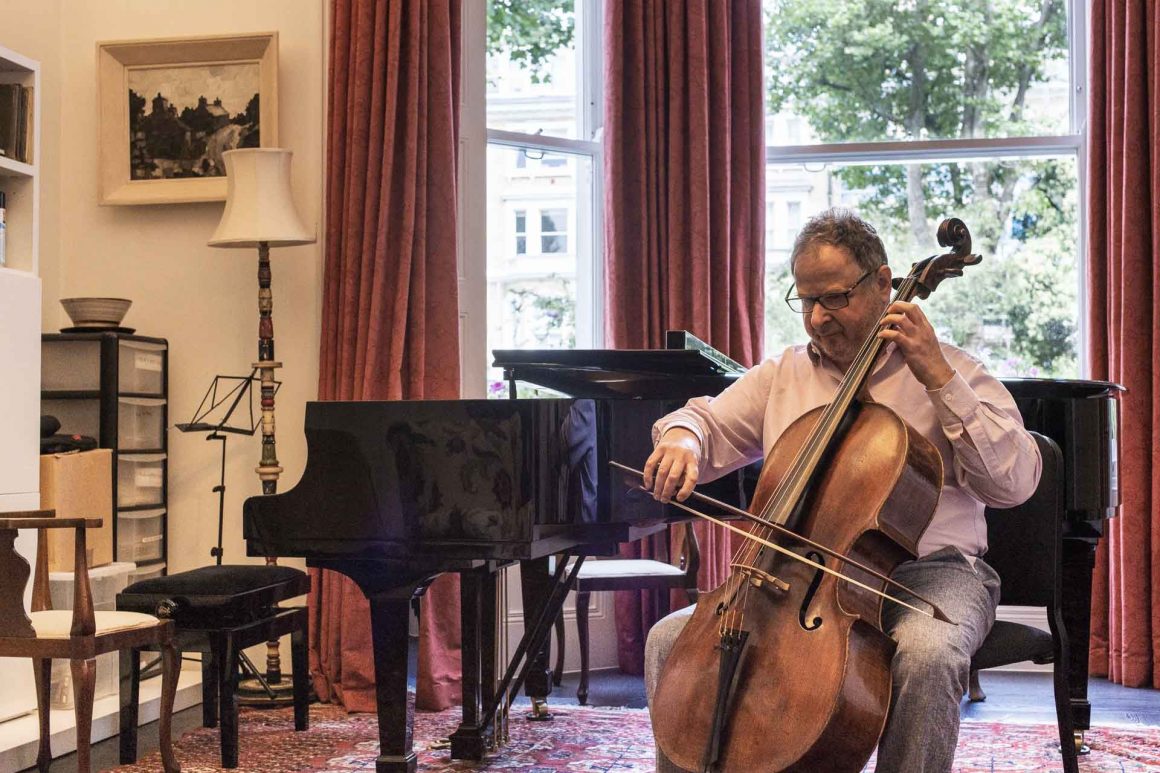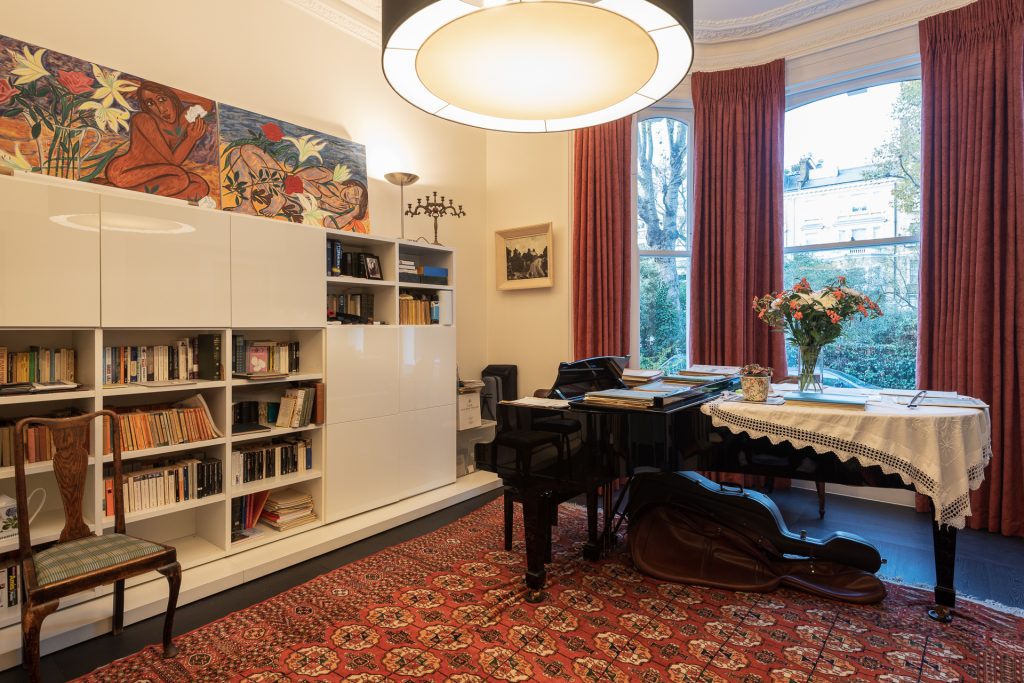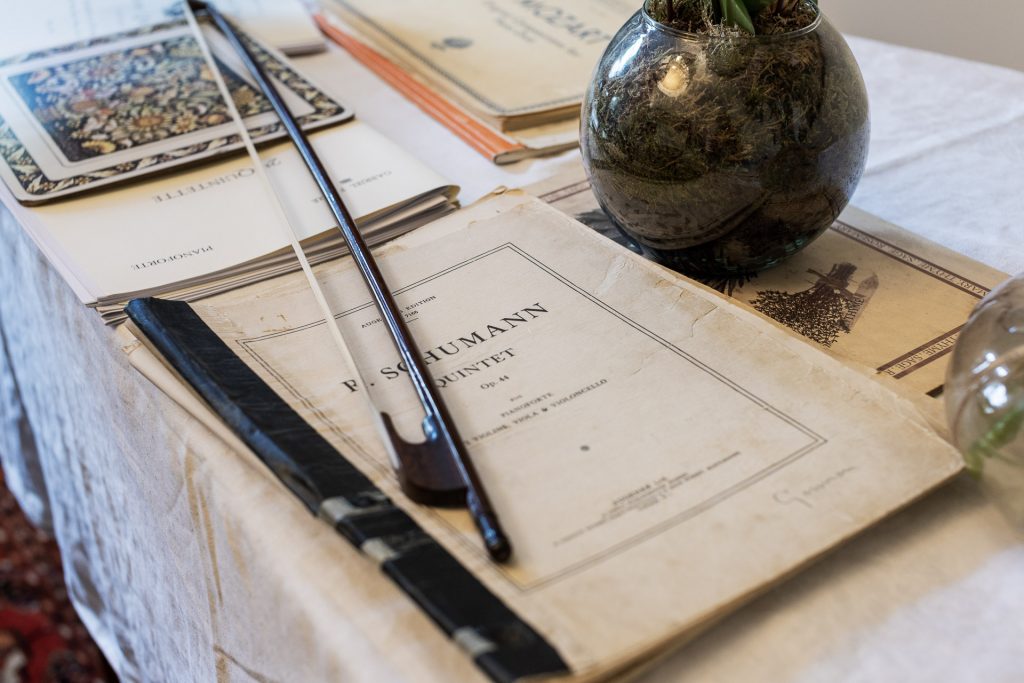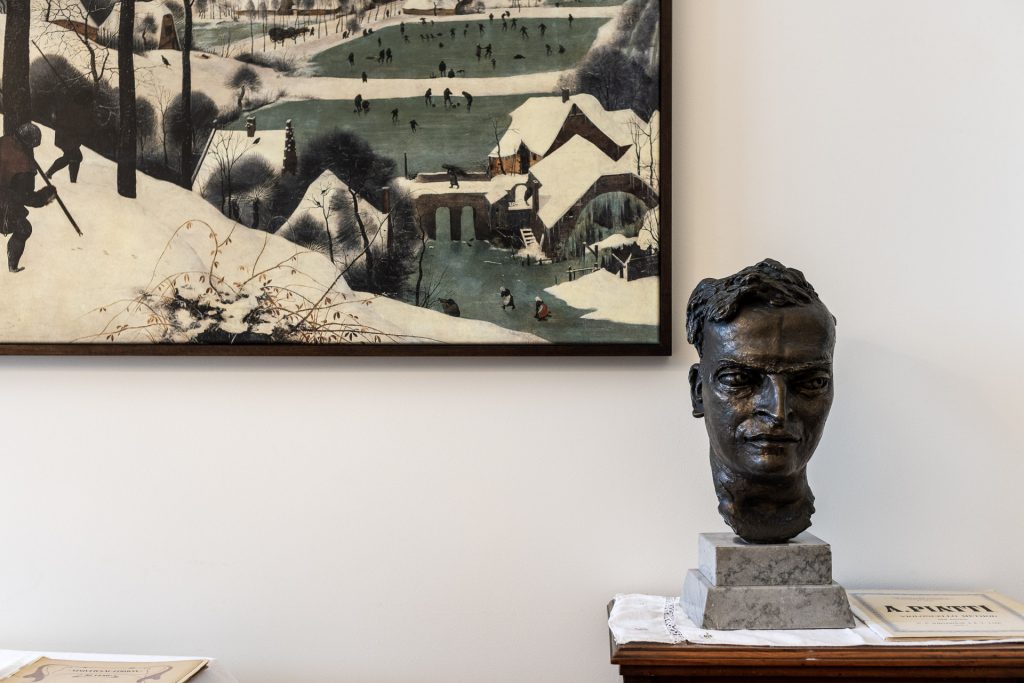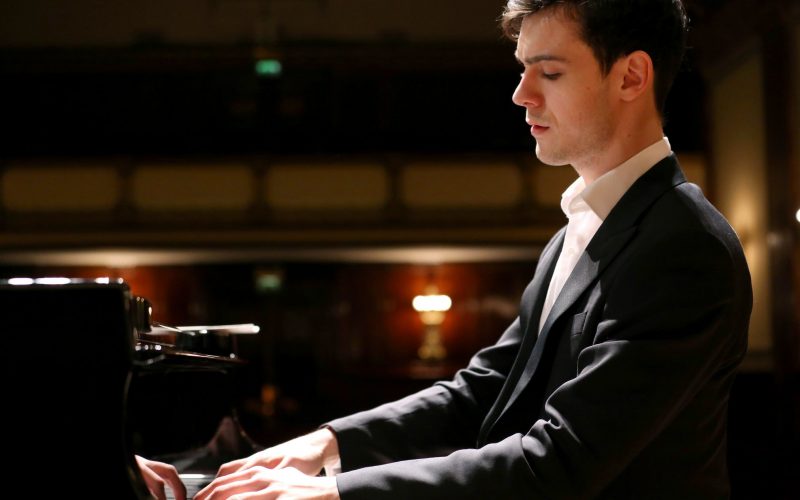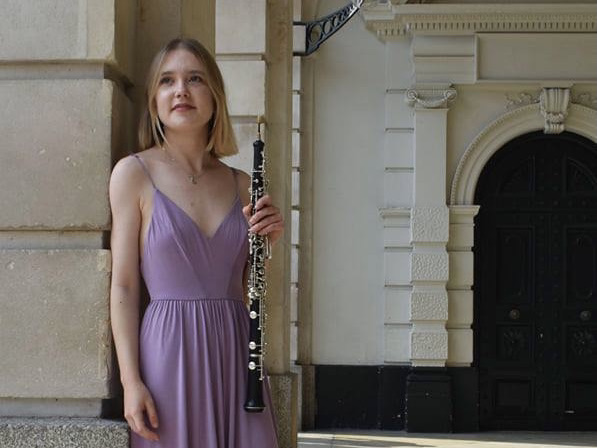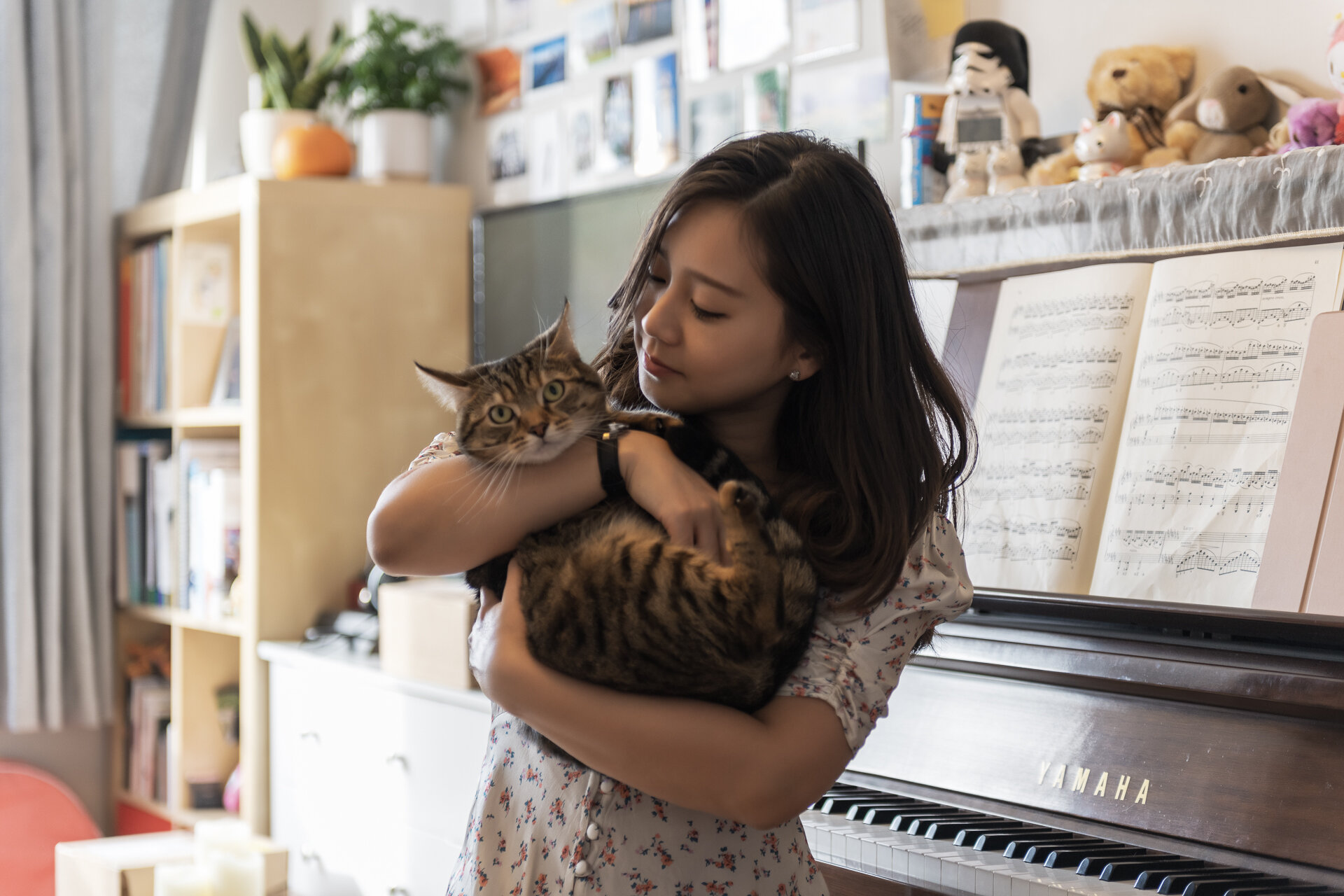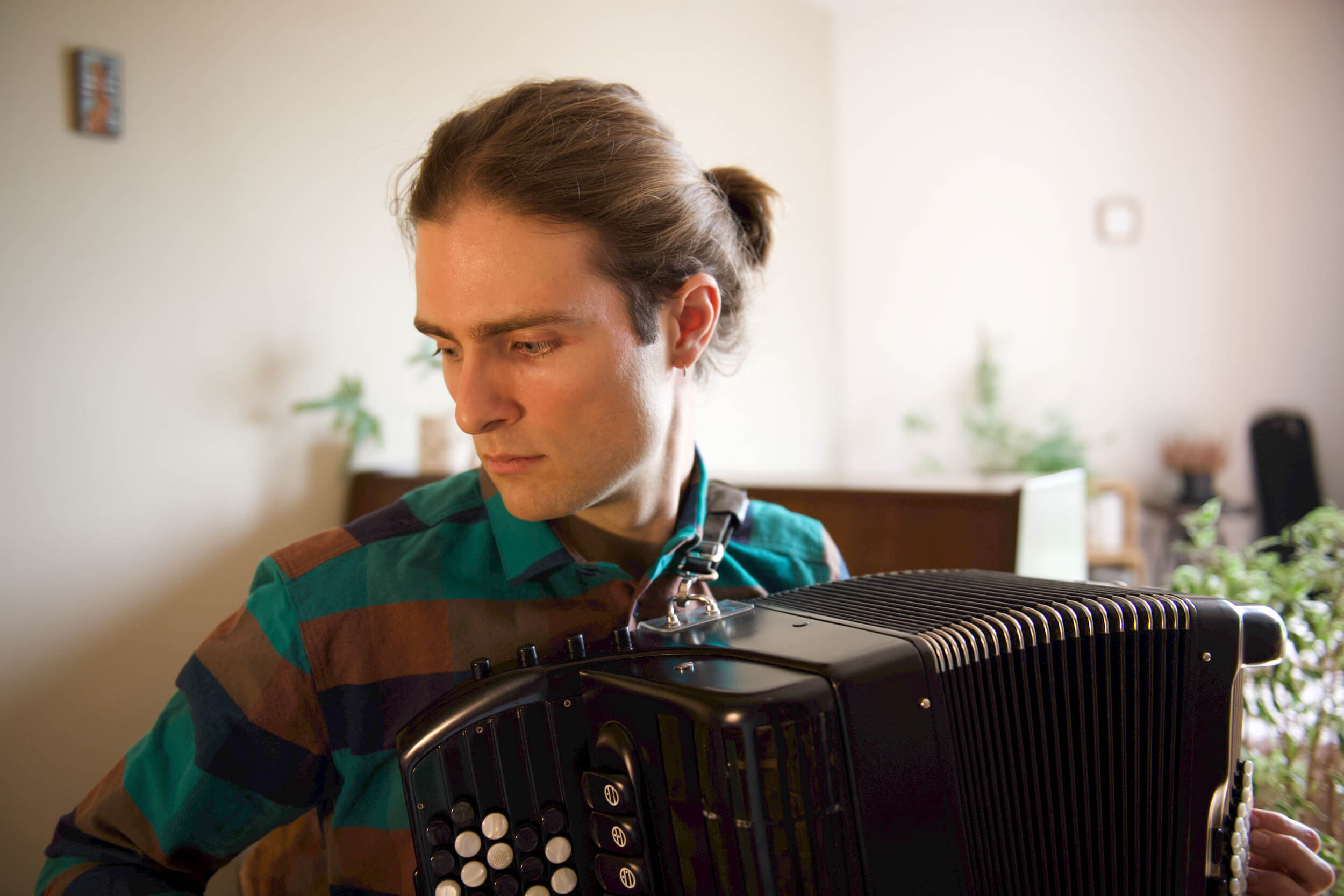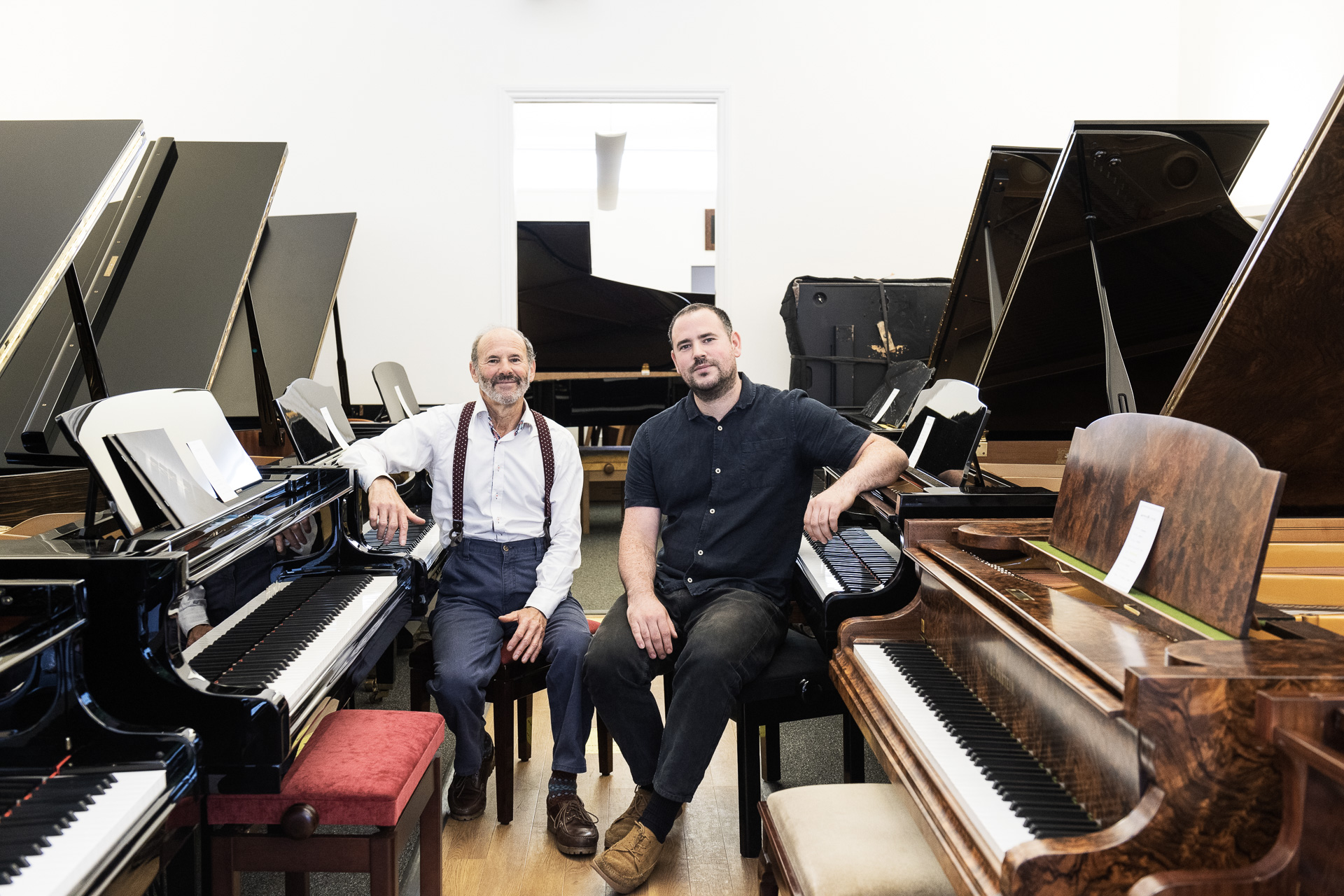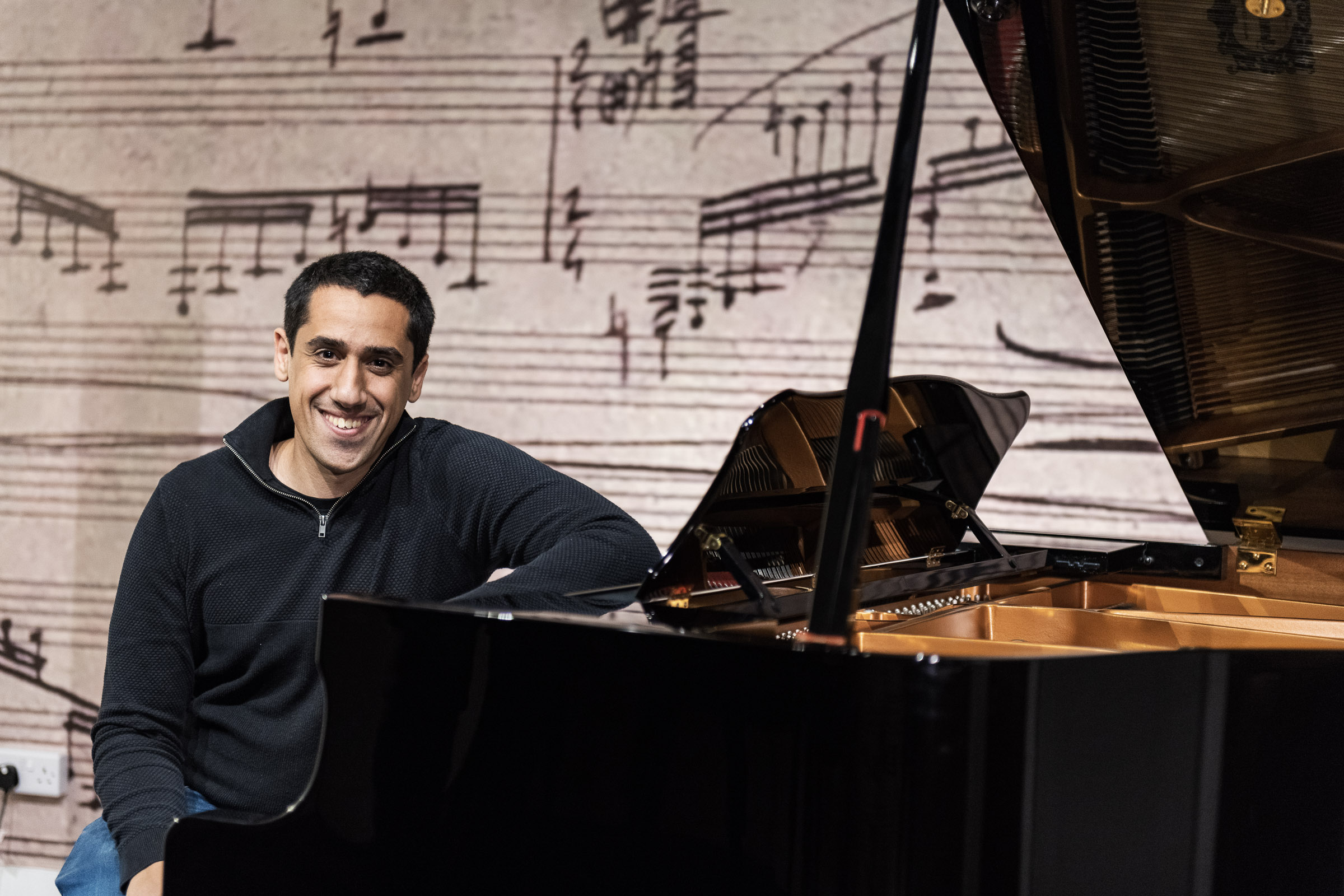meet the hosts
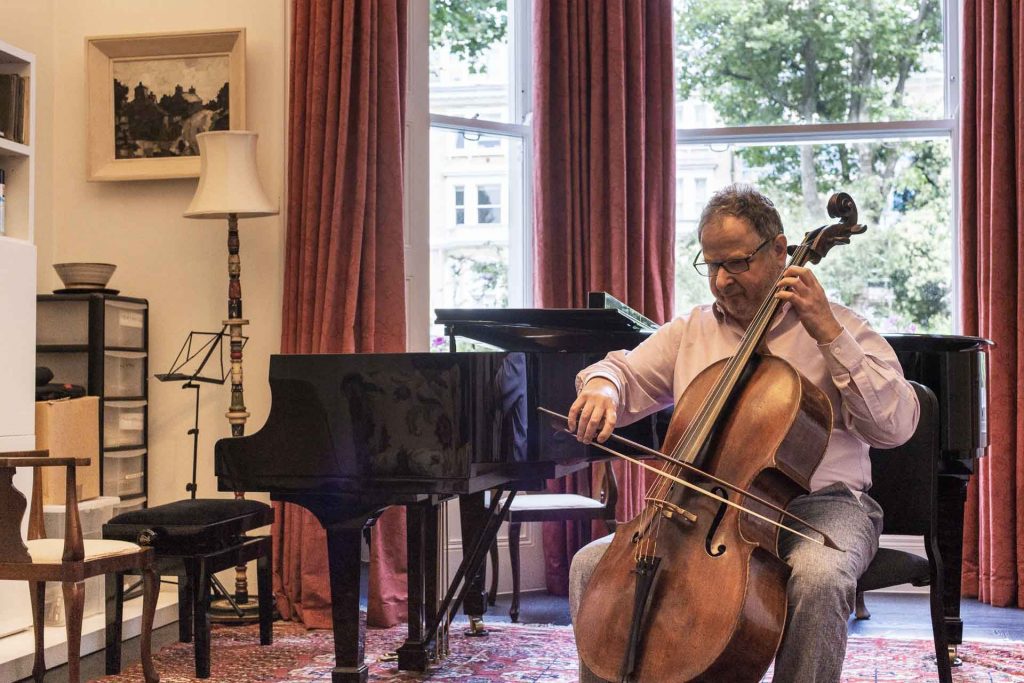
“The piano can once again justify its presence in the world, and it further supports the making of music. It made a sort of poetic sense for the proceeds to go towards research into curing Parkinson’s diseases and into ameliorating its effects.“
Situated just an eight-minute walk from Earl’s Court station, George Storm’s charming piano room is a haven of culture and creativity, with bold artwork, sculptures and scores filling every crevice of space. The stunning Steinway is the statement of the room; it is placed by the front windows overlooking a green courtyard, allowing sunshine to stream in and illuminate music on the piano. The room feels cosy but inspiring, personal but also a performance space: it is no wonder that it is one of the most frequently booked spaces on mushRoom.
George describes himself as a ‘lapsed mathematician’ who believes that you have to try ‘some of everything that appeals in life’; his dry wit offsets a generous warmth as we sit by a coffee table holding a pile of books which includes a biography of Georgia O’Keeffe and a heavy-looking hardback titled ‘Opera: Passion, Power and Politics’. George explains that the house can feel empty with just him and his wife Brenda, and that he enjoys welcoming musicians of all ages and abilities into his home for his Sunday chamber music sessions, at which he plays his cello. We chat to George on a sunny summer morning about his long-lasting attachment to the cello and what he enjoys about sharing his musical space.
How have you found the experience of being a host?
George
_
It is very positive; my wife Brenda’s room is adjacent to the piano room – it is her piano but she can no longer play due to Parkinson’s – and hearing it stimulates her. We mostly get very good musicians coming to play and so far they are all nice people. We cannot help overhearing, and it is a privilege to hear how different pieces and their different musical imaginations interact. It is even helpful to hear some relative beginners, as students’ progress has been such a large part of our lives since Brenda started teaching at home following ‘retirement’. Then there is the temptation to comment – mostly resisted, but not quite always…
Could you tell us more about your piano?
George
_
It is a Steinway model B, which is generally regarded as the best domestic piano, and is optimised for the kind of room we have. The next bigger one, which could in principle be a better piano, is actually optimised for power, so is less suitable for a living room.
What is your relationship with music?
George
_
I started playing the violin at the age of about two or three, and saw the light between the age of four and six that this was not the instrument for me and switched to the cello, to which I have been attached for the last seventy-odd years. My father was obsessed with music and when he moved to England it was an opportunity for him to do what he hadn’t been allowed to do and pursue the violin professionally. He then started what I believe is the first general access instrumental scheme in the country; the borough of Tottenham had a very forward-looking director of music and he set up the scheme. My father was lucky enough the get the job running it so there was always a lot of music around.
Do you still enjoy playing the cello?
George
_
I play in the Kensington philharmonic and the Amati, which is a big amateur orchestra of mostly young people – I just make up the age range. The only thing about music I don’t like is practice, which is why I am a dedicated amateur and not a professional! I spent this weekend mucking up the cello part of Strauss’s The Egyptian Helen – not the world’s easiest work I have to say.
Over £4180 has been collected for the Parkinson’s UK charity from hosting your mushRoom space, could you tell us more about that?
George
_
As it is my wife Brenda’s piano, and Parkinson’s is the reason she can’t play it any longer, all the proceeds go towards Parkinson’s charities. Brenda used to play for several hours a day, but her (carefully chosen) instrument became neglected as Parkinson’s progressed. Then came Judy’s invitation to join mushRoom: the piano can once again justify its presence in the world, and it further supports the making of music. It made a sort of poetic sense for the proceeds to go towards research into curing Parkinson’s diseases and into ameliorating its effects.
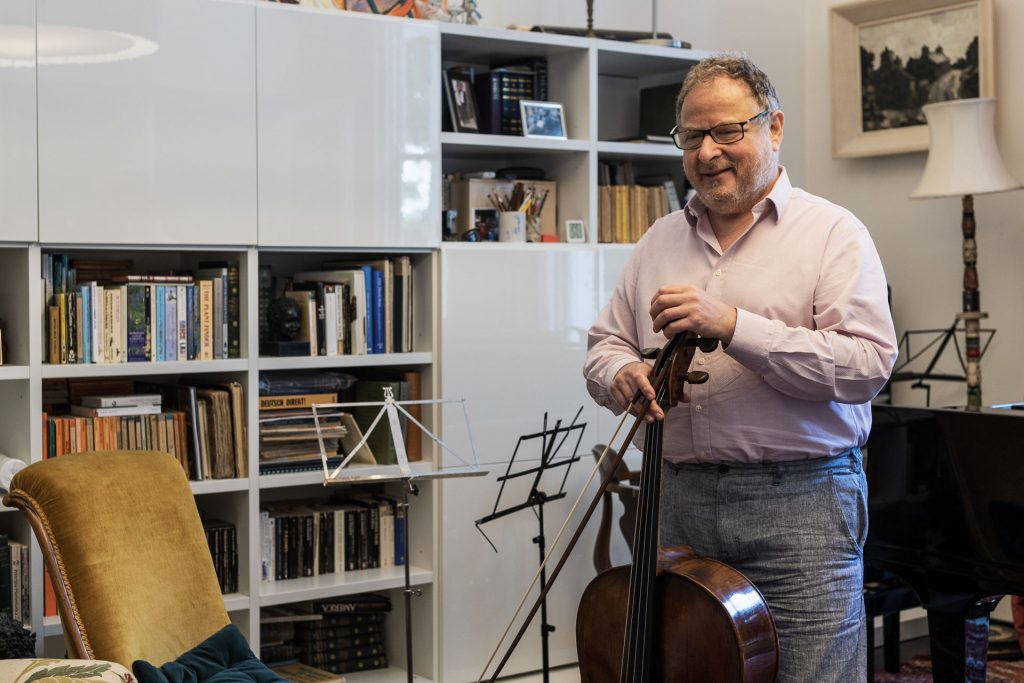
Do you use your space for other musical activities?
George
_
Pre-Covid, our weekly open-invitation chamber-music sessions gave the piano an airing, as well as allowing Brenda to hear live music (we have recently restarted this for double-vaccinated only, unfortunately). That started out at an evening for my orchestra, the Kensington philharmonic, and I suggested a chamber music evening at my place. I then spotted a chamber music group on a meetup site, which meets every alternate week, so I went along and thought why don’t we fill the gaps. We have facilities as good as any I think, as we have a few rooms that can be converted to playing spaces with a good piano and a harpsichord. Next Sunday, we have about thirty people coming to play music in different rooms. They are very inclusive sessions, as long as everyone is capable of listening. This room, with luck, will host a wind octet!
Which composers do you enjoying playing and listening to?
George
_
It would be easier to ask whom I don’t enjoy! That really is most minimalists; I don’t get endless repetition, it just doesn’t appeal, as I think you can see from the décor here.
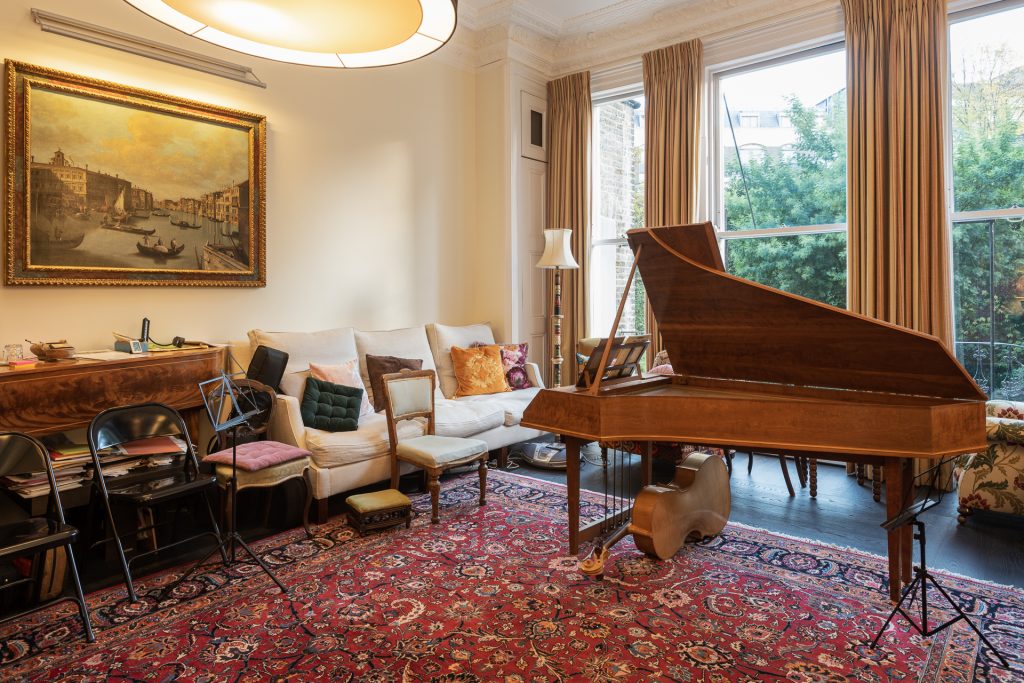
Would you recommend sharing your musical space by hosting a piano room?
George
_
Yes, I would. It isn’t for nervous people obviously but it is a continuing joy to host these musicians.
Finally, could you talk to us about your obvious love of artwork?
George
_
I believe that you have to do some of everything that appeals, as much as time permits, so I am a bit of a magpie for art and music I suppose!
For the most part, I like to buy living artists and then my wife loves Russel Flint, so that hangs nicely. I buy artwork that I like and that tells me where it is going to be hung. For example, it was obvious that the portrait of the refugee – many of my family have been refugees – is looking up at the staircase towards the pictures of my grandchildren as if to say ‘this is the future’.
Book George Storm’s music rooms here.
